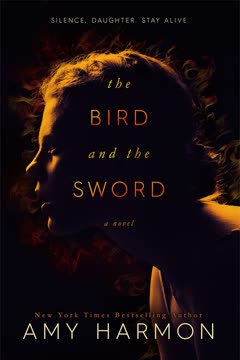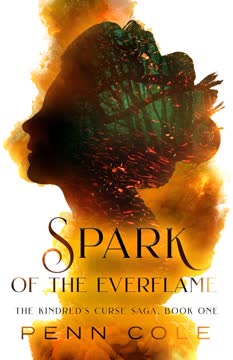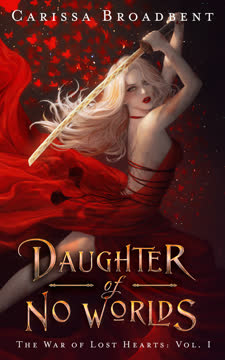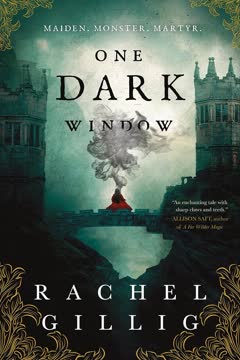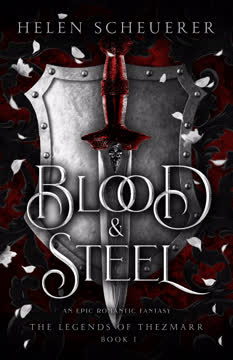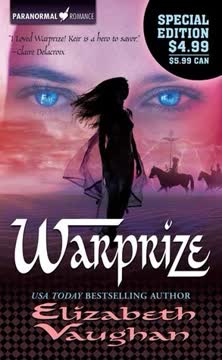Plot Summary
The Silent Child's Secret Power
Lark is a mute child with a powerful secret: she is a Teller, able to shape reality with her words. Her mother, Meshara, silenced her with a curse to protect her from the dangers of her power. After Meshara's death at the hands of the king, Lark grows up communicating through gestures, her life intertwined with her father's due to the curse. Despite her silence, Lark's mind is alive with words, and she must navigate a world that fears her abilities while discovering her own identity and strength.
A Kingdom's Dangerous Game
King Tiras of Jeru takes Lark from her father, using her as leverage to ensure Lord Corvyn's loyalty. Tiras, unlike his predecessors, is more lenient towards the Gifted and sees potential in Lark. The kingdom is under threat from the Volgar, monstrous birdmen, and Tiras needs Lark's power to help defeat them. Lark is caught between her father's ambitions and the king's plans, struggling with her identity and the power she cannot fully control, while also being seen as a potential queen.
The King's Hidden Transformation
Tiras, the king, is also a Changer, able to transform into an eagle. This ability is both a gift and a curse, as it becomes increasingly difficult for him to control. He confides in Lark, hoping she can help him manage his transformations. Their bond deepens as they share their secrets, but Lark is wary of being used as a tool in the king's battle against the Volgar. She is torn between her growing feelings for Tiras and her fear of her own power.
Battle Against the Volgar
The Volgar attack, and Tiras leads his army into battle. Lark uses her words to influence the Volgar, bringing them down from the sky and turning the tide in favor of Jeru. The battle is brutal, and Lark is overwhelmed by the death and destruction her power causes. She saves many lives but is haunted by the lives she takes. Tiras is grateful for her help, but Lark struggles with the morality of her actions and the weight of her abilities.
A Bond Beyond Words
As they prepare for another confrontation with the Volgar, Lark and Tiras grow closer. Tiras values Lark not just for her power but for her strength and resilience. He sees her as more than a weapon, and their connection deepens into something more personal. However, Lark is conflicted, unsure if she can trust Tiras's intentions. She fears being used and discarded once her usefulness is over, and she grapples with her feelings for the king.
The Price of Power
Lark's power is both a blessing and a curse. It saves lives but also brings death. She is a key player in the kingdom's survival, yet she is isolated by her abilities. Tiras's reliance on her grows, and she must decide if she will embrace her role or seek freedom from the burdens it brings. The looming threat of the Volgar and the political machinations of the kingdom force Lark to confront her fears and choose her path, knowing that her decisions will shape the future of Jeru.
The King's Desperate Proposal
Tiras, desperate to secure his kingdom, proposes to Lark, offering her the role of queen. Lark, burdened by her gift and her silence, is conflicted. She desires to be wanted for herself, not just for her power. Tiras insists he wants her as his queen, but Lark doubts his intentions, fearing she is merely a tool in his battle against the Volgar. Despite her reservations, Lark agrees to marry Tiras, hoping to find her place and voice in a world that sees her as a weapon.
A Kingdom Under Siege
As Lark and Tiras navigate their complex relationship, the kingdom faces increasing threats from the Volgar. Tiras, who can transform into an eagle, struggles with his own identity and the burden of his gift. Lark grapples with the morality of using her power to influence the Volgar. The kingdom is on edge, and the political machinations of the lords add to the tension. Lark must decide whether to embrace her role as queen or seek freedom from the burdens it brings.
The Volgar Liege's Return
The true threat to Jeru is revealed when Zoltev, Tiras's father and the Volgar Liege, returns. Zoltev, a Changer and Spinner, has created an army of Volgar to reclaim Jeru. He offers Lark a choice: join him or face destruction. Lark, horrified by Zoltev's power and his connection to Tiras, must confront her fears and the legacy of her mother's curse. As Zoltev's army descends upon Jeru, Lark realizes the full extent of her power and the responsibility it carries.
The Queen's Silent Resolve
With Jeru under siege, Lark must find the courage to use her gift to protect the kingdom. She calls upon the Gifted to aid in the defense, revealing her true power. As the battle rages, Lark's silence becomes her strength, allowing her to wield words with precision and impact. She faces betrayal and loss but remains steadfast in her resolve to save Jeru. Her journey of self-discovery reaches a critical point as she learns to trust herself and her abilities.
The Battle for Jeru
The final battle for Jeru unfolds as Tiras and Lark confront Zoltev and his Volgar army. Tiras, embracing his dual nature, fights alongside Lark, who uses her words to turn the tide. The battle is fierce, and sacrifices are made. Lark's love for Tiras and her determination to protect Jeru drive her to new heights. In a moment of clarity, she breaks her mother's curse, freeing Tiras from his transformation and securing victory for Jeru. The kingdom is saved, but the cost is high.
A New Dawn for Jeru
With the battle won, Lark and Tiras look to the future. The kingdom begins to heal, and the Gifted are embraced as allies rather than threats. Lark, now a queen in her own right, finds her voice and her place in Jeru. Tiras, free from his father's shadow, vows to be a just ruler. Together, they rebuild Jeru, fostering a new era of peace and understanding. Lark's journey of self-acceptance and empowerment is complete, and she embraces her role as a leader and a mother.
Characters
Lark
Lark is a young woman burdened with a gift she cannot fully control. Her journey is one of self-discovery and acceptance, as she learns to wield her power responsibly. Caught between her love for Tiras and her fear of being used, Lark must find her voice and her place in a world that fears her abilities. Her strength and resilience are tested as she faces betrayal and loss, but she emerges as a true leader, embracing her role as queen and protector of Jeru.
King Tiras
Tiras is the ruler of Jeru, a man with the ability to change into an eagle. His gift is both a strength and a vulnerability, as it becomes harder for him to control. Tiras is strategic and determined, using Lark's power to fight the Volgar. His relationship with Lark is complex, as he balances his duty as king with his growing feelings for her. Tiras's journey is one of redemption and self-acceptance, as he learns to embrace his dual nature and his love for Lark.
Zoltev
Zoltev, the Volgar Liege, is Tiras's father and the true threat to Jeru. A Changer and Spinner, Zoltev has created an army of Volgar to reclaim the kingdom. His power is immense, and his ambition knows no bounds. Zoltev's return forces Lark and Tiras to confront their fears and the legacy of his tyranny. His downfall is a turning point for Jeru, as the kingdom begins to heal from the wounds of his reign.
Kjell
Kjell is Tiras's trusted friend and a fierce warrior. He is skeptical of Lark and her powers, viewing her as a potential threat to the king. Kjell is protective of Tiras, willing to do whatever it takes to keep him safe. His loyalty is unwavering, but he is wary of the influence Lark has over Tiras and the kingdom. Kjell's journey is one of acceptance, as he learns to embrace his own gift and his role in
Last updated:
FAQ
Synopsis & Basic Details
What is The Bird and the Sword about?
- A Mute Teller's Awakening: The Bird and the Sword follows Lark, a young woman cursed to silence by her Teller mother, Meshara, to protect her from a kingdom that fears magic. Despite her inability to speak aloud, Lark possesses a powerful gift: she can shape reality with her thoughts and words.
- A King's Desperate Alliance: Lark is taken from her home by King Tiras of Jeru, a ruler burdened by his own hidden Changer gift – the ability to transform into an eagle. He uses Lark as a pawn in a political struggle against his own lords and the monstrous Volgar, hoping her unique power can save his kingdom.
- Love, Duty, and Self-Discovery: As Lark and Tiras navigate political intrigue, deadly battles, and their own complex, forbidden gifts, their relationship evolves from captor and captive to a deep, unspoken bond. The story explores Lark's journey to reclaim her voice, Tiras's struggle to control his changing nature, and their combined fight to redefine what it means to be Gifted in a world steeped in fear and prejudice.
Why should I read The Bird and the Sword?
- Unique Magic System: Dive into a world where words hold tangible power, capable of shaping reality, healing, and destruction. Lark's silent, internal magic offers a fresh take on fantasy abilities, making her journey of discovery both fascinating and deeply personal.
- Rich Character Development & Romance: Experience a slow-burn romance built on shared vulnerability and profound understanding between two powerful, yet deeply flawed, characters. Lark's transformation from an invisible mute to a formidable queen, and Tiras's struggle with his identity, are compelling and emotionally resonant.
- Themes of Acceptance and Identity: Beyond the thrilling plot, the novel delves into universal themes of self-acceptance, the courage to embrace one's true nature, and the fight against prejudice. It's a story about finding your voice, even when you can't speak, and the power of love to heal deep-seated societal wounds.
What is the background of The Bird and the Sword?
- A History of Persecution: The land of Jeru is steeped in a history of fear and persecution against the "Gifted" – individuals with magical abilities inherited from the Creator's four original children: the Spinner, the Changer, the Healer, and the Teller. Generations of warrior kings, starting with the one who slayed a dragon-Changer, systematically eradicated the Gifted, believing equality could only be achieved if no one was special.
- The Legacy of King Zoltev: King Tiras's father, Zoltev, was particularly brutal in his suppression of magic, famously cutting off the hands of a Spinner and murdering Lark's Teller mother, Meshara, for a seemingly innocuous act of magic. This era instilled deep fear in the populace and forced any remaining Gifted into hiding, shaping the political landscape and the characters' personal histories.
- A Kingdom Under Threat: Jeru is currently under siege by the Volgar, monstrous birdmen led by the enigmatic Liege. These creatures are believed to be a new, terrifying manifestation of magic, further fueling the council's desire to eliminate all Gifted, even as King Tiras seeks to understand and potentially utilize them.
What are the most memorable quotes in The Bird and the Sword?
- "Swallow Daughter, pull them in, those words that sit upon your lips. Lock them deep inside your soul, hide them 'til they've time to grow. Close your mouth upon the power, curse not, cure not, 'til the hour. You won't speak and you won't tell, you won't call on heav'n or hell. You will learn and you will thrive. Silence, daughter. Stay alive.": This powerful incantation, whispered by Lark's dying mother, Meshara, is the foundational curse and prophecy that shapes Lark's entire life, explaining her muteness and foreshadowing her eventual destiny. It encapsulates the central conflict of her suppressed power.
- "I am not a weapon. I don't want to be a weapon!": Lark's desperate internal cry to Tiras reveals her profound moral struggle with her Teller gift. This quote highlights her deep-seated fear of being used for destruction, contrasting with Tiras's pragmatic view of her abilities and underscoring her journey to define her own purpose beyond mere utility.
- "I have loved you every moment of every day, and I will love you until I cease to be. Bird, man, or king, I love you, and I will always love you.": Tiras's raw and vulnerable confession of love to Lark is a pivotal moment, breaking through her emotional walls and affirming his devotion beyond duty or need. It underscores the novel's central theme that love transcends form and circumstance, offering a powerful counterpoint to the kingdom's history of fear.
What writing style, narrative choices, and literary techniques does Amy Harmon use?
- Lyrical and Evocative Prose: Amy Harmon employs a poetic and sensory-rich writing style, particularly in describing Lark's internal world and her connection to words. Phrases like "words swarm silently all around me, like quiet watchers" or "the air crackled, like a storm was approaching" create a vivid, immersive experience, enhancing the magical realism.
- First-Person Internal Monologue: The narrative is primarily told from Lark's first-person perspective, but uniquely, her "voice" is an internal monologue of thoughts and unspoken words. This narrative choice brilliantly conveys her isolation and the power of her Teller gift, allowing readers direct access to her rich inner life and emotional struggles, even as she remains outwardly silent.
- Symbolism and Foreshadowing: Harmon masterfully weaves symbolism throughout the story, such as birds representing freedom and transformation, the Well of Words signifying lost and found power, and the changing seasons mirroring character development. Subtle foreshadowing, like the "Prince of Poppets" flying, builds suspense and adds layers of meaning that become apparent upon re-reading.
Hidden Details & Subtle Connections
What are some minor details that add significant meaning?
- Boojohni's "Love" Word: Despite his constant grumbling and seemingly gruff demeanor, Lark consistently hears the word "love" emanating from Boojohni's thoughts. This subtle detail reveals his unwavering, unconditional affection for Lark, serving as a constant emotional anchor for her in a world where she often feels unloved or used. It highlights the theme of true connection transcending outward appearances.
- The Well of Words' Significance: The city's "Well of Words," where people shout their desires, is more than a local custom; it's a symbolic echo of the Creator's original act of giving words and gifts. It represents the collective yearning for power and fulfillment, but also the diluted and often misguided understanding of true magic, contrasting with Lark's profound, inherent connection to words.
- Tiras's White Hair as a "Curse": Tiras's striking white hair, a stark contrast to his dark skin, is a physical manifestation of his uncontrolled Changer gift. It's a visible "taint" that mirrors Lark's silence, marking him as different and vulnerable. This detail subtly connects their shared experience of being outwardly marked by their gifts, fostering empathy and understanding between them.
What are some subtle foreshadowing and callbacks?
- The Prince of Poppets' Flight: In the prologue, young Lark's "Prince of Poppets" doll is imbued with the word "fly" and soars out the window. This seemingly innocent act directly foreshadows King Tiras's hidden Changer gift, his ability to transform into an eagle, and his deep desire for freedom and flight, which Lark later helps him control.
- Meshara's Prophecy to Zoltev: Lark's mother tells King Zoltev, "If you kill me, you will lose your soul and your son to the sky." This is a powerful callback throughout the narrative. It foreshadows Zoltev's eventual transformation into the Volgar Liege (losing his soul) and Tiras's Changer gift (losing his son to the sky as an eagle), revealing the deep, generational impact of Meshara's Teller power.
- Kjell's Hidden Healing Gift: Kjell's initial disdain for the Gifted, particularly Healers, is a subtle setup for the later revelation of his own latent healing ability. His fierce loyalty to Tiras, coupled with his prejudice, foreshadows the internal conflict he must overcome, and his eventual role in saving Tiras by embracing the very gift he once scorned.
What are some unexpected character connections?
- Hashim, Master of the Mews, as a Changer: The quiet, unassuming Master of the Mews, Hashim, is revealed to be a Changer himself, and a confidante to Tiras in his eagle form. This connection is unexpected because Hashim is a minor character, yet he provides Tiras with a safe haven and understanding, highlighting that the Gifted exist in all walks of life and often hide in plain sight.
- Lady Firi's True Nature as a Changer/Spinner: Lady Ariel of Firi, initially presented as a beautiful, ambitious, and seemingly loyal ally, is revealed to be a powerful Changer and Spinner, capable of manipulating both form and matter. Her true nature as the orchestrator of Tiras's abduction and an ally of Zoltev is a significant twist, demonstrating that not all Gifted are benevolent and that ambition can corrupt.
- Kjell as Zoltev's Bastard Son: The revelation that Kjell is King Zoltev's illegitimate son adds a profound layer to his character. It explains his unwavering loyalty to Tiras (his half-brother), his deep-seated resentment of the Gifted (a legacy of his father's reign), and his complex relationship with the throne, making his eventual acceptance of his own healing gift and his role as regent even more poignant.
Who are the most significant supporting characters?
- Boojohni, the Loyal Troll: Boojohni is more than just Lark's protector; he is her emotional anchor and the only one who consistently "hears" her true feelings, even before she can communicate with Tiras. His unwavering love, simple wisdom, and comedic relief provide crucial balance to Lark's isolated existence and the story's darker themes, embodying the idea that true loyalty transcends species and status.
- Kjell, the Reluctant Healer: Kjell serves as Tiras's fiercely loyal captain and brother, but his significance deepens with the revelation of his own suppressed healing gift. His journey from prejudice against the Gifted to embracing his own power and becoming a co-ruler with Lark is central to the kingdom's transformation, symbolizing the breaking down of old fears and the forging of new alliances.
- Mother Gwyn, the Ancient Teller: Mother Gwyn, the old woman who anoints Lark's feet, is revealed to be an ancient Teller and a source of profound wisdom. She connects Lark to her lineage, provides crucial prophetic insights, and validates Lark's unique abilities, serving as a spiritual guide and a reminder of the enduring power of the Gifted.
Psychological, Emotional, & Relational Analysis
What are some unspoken motivations of the characters?
- Lord Corvyn's Self-Preservation: Lord Corvyn's primary unspoken motivation is his desperate fear of death, directly tied to Meshara's curse: "if she dies . . . if she is even harmed, you will share the very same fate." This drives his neglectful control over Lark, his attempts to reclaim her from Tiras, and his willingness to conspire against the king, all to ensure his own survival, rather than genuine paternal love.
- Tiras's Yearning for Acceptance: Beyond his duty as king, Tiras harbors a deep, unspoken yearning for acceptance of his Changer gift. His confession to Lark, "I am losing myself. Piece by bloody piece," reveals his fear of becoming a monster like his father. His desire for Lark's understanding and her ability to "see" him, even in his animal form, is a powerful motivator for their bond.
- Lark's Desire to Be "Wanted": Lark's long-standing isolation and muteness create an unspoken desire to be wanted for herself, not just for her utility. Her internal thought, "I want to be wanted," reveals her vulnerability. This motivation drives her resistance to Tiras's initial attempts to "use" her and her eventual surrender to his love, as she seeks genuine connection over mere purpose.
What psychological complexities do the characters exhibit?
- Lark's Traumatic Silence and Power: Lark's muteness is a psychological scar from witnessing her mother's murder, leading to a deep-seated fear of her own words and their potential for harm. This trauma creates a complex internal world where her immense power is both a source of terror and a desperate longing for expression, making her journey one of profound self-acceptance and healing.
- Tiras's Guilt and Identity Crisis: Tiras is psychologically burdened by his father's tyrannical legacy and his own uncontrolled Changer gift. He grapples with immense guilt, believing his gift might have driven his father to suicide and fearing he will become a monster. This internal conflict fuels his relentless pursuit of justice and his struggle to reconcile his human duty with his animalistic nature, leading to an identity crisis.
- Kjell's Prejudice and Suppressed Empathy: Kjell exhibits a complex psychological duality: fierce loyalty to Tiras coexists with ingrained prejudice against the Gifted, a reflection of Jeru's history. His own latent healing gift, which he denies, creates an internal battle between his learned hatred and his inherent capacity for empathy, making his eventual acceptance of his gift a significant personal triumph.
What are the major emotional turning points?
- Lark's First Conscious Spell: The moment Lark consciously commands a candle to move, then accidentally starts a fire, is a terrifying emotional turning point. It shifts her understanding of her gift from a passive, internal awareness to an active, potentially destructive force, forcing her to confront the immense power
Synopsis & Basic Details
What is The Bird and the Sword about?
- A Mute Teller's Awakening: The Bird and the Sword follows Lark, a young woman cursed to silence by her Teller mother, Meshara, to protect her from a kingdom that fears magic. Despite her inability to speak aloud, Lark possesses a powerful gift: she can shape reality with her thoughts and words.
- A King's Desperate Alliance: Lark is taken from her home by King Tiras of Jeru, a ruler burdened by his own hidden Changer gift – the ability to transform into an eagle. He uses Lark as a pawn in a political struggle against his own lords and the monstrous Volgar, hoping her unique power can save his kingdom.
- Love, Duty, and Self-Discovery: As Lark and Tiras navigate political intrigue, deadly battles, and their own complex, forbidden gifts, their relationship evolves from captor and captive to a deep, unspoken bond. The story explores Lark's journey to reclaim her voice, Tiras's struggle to control his changing nature, and their combined fight to redefine what it means to be Gifted in a world steeped in fear and prejudice.
Why should I read The Bird and the Sword?
- Unique Magic System: Dive into a world where words hold tangible power, capable of shaping reality, healing, and destruction. Lark's silent, internal magic offers a fresh take on fantasy abilities, making her journey of discovery both fascinating and deeply personal.
- Rich Character Development & Romance: Experience a slow-burn romance built on shared vulnerability and profound understanding between two powerful, yet deeply flawed, characters. Lark's transformation from an invisible mute to a formidable queen, and Tiras's struggle with his identity, are compelling and emotionally resonant.
- Themes of Acceptance and Identity: Beyond the thrilling plot, the novel delves into universal themes of self-acceptance, the courage to embrace one's true nature, and the fight against prejudice. It's a story about finding your voice, even when you can't speak, and the power of love to heal deep-seated societal wounds.
What is the background of The Bird and the Sword?
- A History of Persecution: The land of Jeru is steeped in a history of fear and persecution against the "Gifted" – individuals with magical abilities inherited from the Creator's four original children: the Spinner, the Changer, the Healer, and the Teller. Generations of warrior kings, starting with the one who slayed a dragon-Changer, systematically eradicated the Gifted, believing equality could only be achieved if no one was special.
- The Legacy of King Zoltev: King Tiras's father, Zoltev, was particularly brutal in his suppression of magic, famously cutting off the hands of a Spinner and murdering Lark's Teller mother, Meshara, for a seemingly innocuous act of magic. This era instilled deep fear in the populace and forced any remaining Gifted into hiding, shaping the political landscape and the characters' personal histories.
- A Kingdom Under Threat: Jeru is currently under siege by the Volgar, monstrous birdmen led by the enigmatic Liege. These creatures are believed to be a new, terrifying manifestation of magic, further fueling the council's desire to eliminate all Gifted, even as King Tiras seeks to understand and potentially utilize them.
What are the most memorable quotes in The Bird and the Sword?
- "Swallow Daughter, pull them in, those words that sit upon your lips. Lock them deep inside your soul, hide them 'til they've time to grow. Close your mouth upon the power, curse not, cure not, 'til the hour. You won't speak and you won't tell, you won't call on heav'n or hell. You will learn and you will thrive. Silence, daughter. Stay alive.": This powerful incantation, whispered by Lark's dying mother, Meshara, is the foundational curse and prophecy that shapes Lark's entire life, explaining her muteness and foreshadowing her eventual destiny. It encapsulates the central conflict of her suppressed power.
- "I am not a weapon. I don't want to be a weapon!": Lark's desperate internal cry to Tiras reveals her profound moral struggle with her Teller gift. This quote highlights her deep-seated fear of being used for destruction, contrasting with Tiras's pragmatic view of her abilities and underscoring her journey to define her own purpose beyond mere utility.
- "I have loved you every moment of every day, and I will love you until I cease to be. Bird, man, or king, I love you, and I will always love you.": Tiras's raw and vulnerable confession of love to Lark is a pivotal moment, breaking through her emotional walls and affirming his devotion beyond duty or need. It underscores the novel's central theme that love transcends form and circumstance, offering a powerful counterpoint to the kingdom's history of fear.
What writing style, narrative choices, and literary techniques does Amy Harmon use?
- Lyrical and Evocative Prose: Amy Harmon employs a poetic and sensory-rich writing style, particularly in describing Lark's internal world and her connection to words. Phrases like "words swarm silently all around me, like quiet watchers" or "the air crackled, like a storm was approaching" create a vivid, immersive experience, enhancing the magical realism.
- First-Person Internal Monologue: The narrative is primarily told from Lark's first-person perspective, but uniquely, her "voice" is an internal monologue of thoughts and unspoken words. This narrative choice brilliantly conveys her isolation and the power of her Teller gift, allowing readers direct access to her rich inner life and emotional struggles, even as she remains outwardly silent.
- Symbolism and Foreshadowing: Harmon masterfully weaves symbolism throughout the story, such as birds representing freedom and transformation, the Well of Words signifying lost and found power, and the changing seasons mirroring character development. Subtle foreshadowing, like the "Prince of Poppets" flying, builds suspense and adds layers of meaning that become apparent upon re-reading.
Hidden Details & Subtle Connections
What are some minor details that add significant meaning?
- Boojohni's "Love" Word: Despite his constant grumbling and seemingly gruff demeanor, Lark consistently hears the word "love" emanating from Boojohni's thoughts. This subtle detail reveals his unwavering, unconditional affection for Lark, serving as a constant emotional anchor for her in a world where she often feels unloved or used. It highlights the theme of true connection transcending outward appearances.
- The Well of Words' Significance: The city's "Well of Words," where people shout their desires, is more than a local custom; it's a symbolic echo of the Creator's original act of giving words and gifts. It represents the collective yearning for power and fulfillment, but also the diluted and often misguided understanding of true magic, contrasting with Lark's profound, inherent connection to words.
- Tiras's White Hair as a "Curse": Tiras's striking white hair, a stark contrast to his dark skin, is a physical manifestation of his uncontrolled Changer gift. It's a visible "taint" that mirrors Lark's silence, marking him as different and vulnerable. This detail subtly connects their shared experience of being outwardly marked by their gifts, fostering empathy and understanding between them.
What are some subtle foreshadowing and callbacks?
- The Prince of Poppets' Flight: In the prologue, young Lark's "Prince of Poppets" doll is imbued with the word "fly" and soars out the window. This seemingly innocent act directly foreshadows King Tiras's hidden Changer gift, his ability to transform into an eagle, and his deep desire for freedom and flight, which Lark later helps him control.
- Meshara's Prophecy to Zoltev: Lark's mother tells King Zoltev, "If you kill me, you will lose your soul and your son to the sky." This is a powerful callback throughout the narrative. It foreshadows Zoltev's eventual transformation into the Volgar Liege (losing his soul) and Tiras's Changer gift (losing his son to the sky as an eagle), revealing the deep, generational impact of Meshara's Teller power.
- Kjell's Hidden Healing Gift:
Review Summary
The Bird and the Sword receives overwhelmingly positive reviews, praised for its enchanting storytelling, beautiful prose, and compelling characters. Readers describe it as a captivating fantasy romance with a unique magical system and powerful themes. Many appreciate the author's ability to create a vivid world and develop a slow-burn romance. While some criticize certain aspects of the plot or characterization, most reviewers consider it a must-read, highlighting its emotional depth and the author's skillful writing. The book is often recommended to both fantasy and romance fans.
Similar Books
Download PDF
Download EPUB
.epub digital book format is ideal for reading ebooks on phones, tablets, and e-readers.
